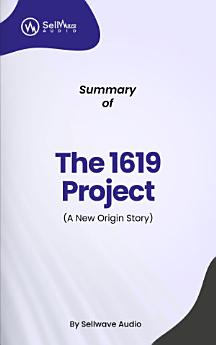Summary of The 1619 Project: A New Origin Story
About this ebook
The book brings together 18 essays from historians, journalists, and scholars alongside 36 creative works by celebrated writers. Together, these pieces illuminate the profound impact slavery has had on politics, economics, culture, and society. From the shaping of capitalism to the construction of racial hierarchies, from the roots of modern traffic systems to the evolution of American music and cuisine, the project demonstrates that the institution of slavery and the ideologies it produced are not relics of the past, but enduring forces embedded in the present.
Rather than treating slavery as a footnote to America’s founding, The 1619 Project insists it is foundational. The essays trace how policies, laws, and cultural practices have perpetuated inequality long after the abolition of slavery, weaving a line from emancipation through Reconstruction, Jim Crow, and into the racial disparities seen today. The creative works interspersed throughout the book amplify these truths, giving voice to the resilience, resistance, and humanity of those who lived through, and continue to endure, the consequences of systemic racism.
This work does not only revisit history; it speaks urgently to the present. By contextualizing the systems of race and caste still embedded in the United States, it challenges readers to reckon with uncomfortable realities and to see how the past shapes the lives, freedoms, and opportunities of Americans today.
The 1619 Project is both a historical corrective and a call to reflection. It reveals how deeply America’s origins are entangled with slavery and its aftermath, and asks what it would mean for the nation to truly confront that legacy in pursuit of justice and equality.
